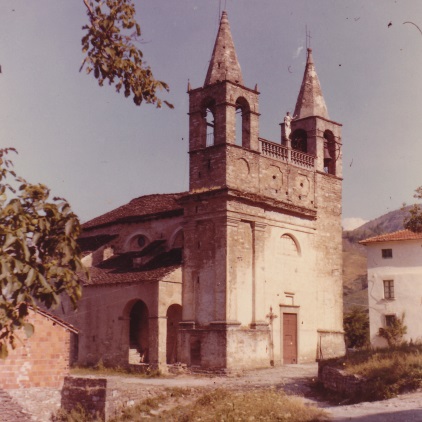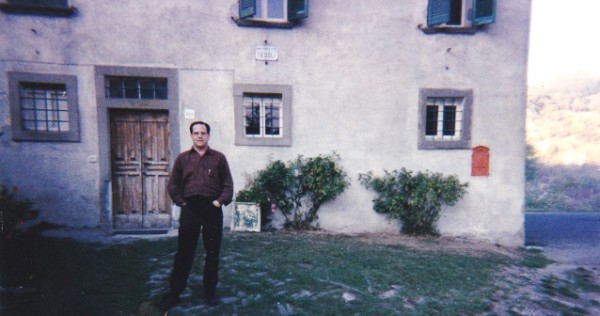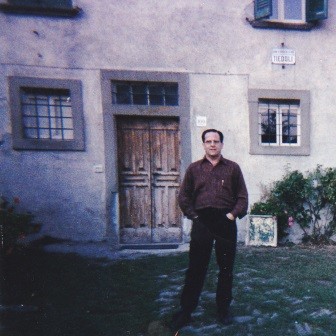
The musty aroma of mushrooms was everywhere. It was the Fiera del Fungo, a festival of porcini mushrooms held every year in the northern mountain town of Borgo Val di Taro, Italy, and I was here sightseeing with two colleagues of mine. What had lured us was the mushrooms, creatively incorporated into dishes of all kinds—from soup to gelato. But what that smell evoked in me was memories from an ocean away, of my childhood in the Bronx and the times when my grandparents, immigrants from Italy, would excitedly open a package of funghi from the “old country.”
That was my real reason for visiting Italy. I wanted to see the part of the country where my grandparents used to live. The college where I teach happens to have a study-abroad program in the nearby city of Parma, and in 2005, I flew out there and met up with two of the program’s directors. One morning, we drove out to the festival in Borgo Val di Taro, taking a few hours to indulge in the town’s more famous dishes. Then we decided to head into Tiedoli.
My grandfather Pietro had grown up there. A small village nestled on the edge of the Apennines mountains, Tiedoli was not even on our Google map. We drove up a winding road until we came across a tiny, barely legible sign that reassured us we were headed in the right direction. As we drove into Tiedoli, I could make out the double steeples of a church—by far the largest building among the village’s smattering of houses and farms.
I wondered if the church had any records of my grandfather. We walked over to the building, an imposing stone structure topped by a statue of John the Baptist. A priest emerged from the front doors just as we arrived. I asked him if there were documents dating back to the 1880s. He laughed. Their records went back to the 1700s, he said.
The priest quickly found a book with baptismal notices from 1886, the year my grandfather was born. He slowly turned the pages, folio-sized sheets filled with handwritten paragraphs of names, dates, and family information. All of a sudden my grandfather’s name jumped out. There it was, in a baptismal announcement in Latin.
The priest confessed he could not read Latin—“O tempora! O mores!” I wanted to exclaim—but I assured him that between his Italian and my four years of high school Latin, we could probably stumble through the paragraph.
Although we have different middle names, my grandfather, my father, and I share the first name Peter, or Pietro. The name, which means “rock,” goes back to the founding of the Roman church. My grandfather would sometimes remind me that June 29 was our name day—the feast of St. Peter.

I have always admired my grandfather. He left Tiedoli to join the carabinieri at the turn of the twentieth century, at a time when members of the national police force looked not unlike the figure stamped on the old Galliano liqueur bottle. He was stationed in Rome, and there he learned about the cosmopolitan world outside the farm country where he had grown up.
When he was in his mid-twenties, Pietro left Italy to seek a new life in America. Many decades later, he told me stories from those early years. After passing through Ellis Island, he looked for work in New York. Signs in store windows told Italians not to bother applying for jobs. But my grandfather would not be discouraged. His first gig was sweeping up in a burlesque house, where the pay amounted to whatever coins had been tossed at the dancing girls and left on the floor. Eventually, he worked his way up to becoming the chief room-service waiter at the prestigious Hotel St. Regis, where he served Winston Churchill, Orson Welles, and the silent film star Nita Naldi.
Pietro met my grandmother Celestina in New York’s ethnic neighborhood for northern Italians—what is now the Murray Hill section of Manhattan. As it turned out, she had grown up in a small hill town just twenty miles from Tiedoli. They were married for fifty-two years before she died. He lived to the age of eighty-nine, remaining to the end a smart, self-educated man who loved to read the newspapers.
When my grandfather died in 1975, I was in my late twenties. I realized then how fortunate I’d been to be able to ask him some of the questions I wished I had brought up with my other grandparents before they died.

According to my grandfather’s August 10 entry in the church’s baptismal records, he had been born the day before, on August 9. The names of his parents—my great-grandparents—were also listed. The entry noted that his father was an orphan with no parents identified. (Back then, these words could have meant that the parents had died, or that the child had been abandoned for being illegitimate.) My grandfather had once told me that it would be difficult to trace our family tree because of his father’s unknown lineage. He often joked about being a possible descendant of the composer Giuseppe Verdi, who was born about fifty miles away, near Busseto, around the same time as my great-grandfather was.
As we were about to close the folio, I noticed a note in the margin next to my grandfather’s entry. The words were written in a different handwriting and ink, and in Italian, not Latin. Went to America 1913, it read.
That’s when the operatic tears started to flow. In those four words lay a major decision in my grandfather’s life. The path he had chosen had taken me, almost a century later, down the road to this village, this church, and this baptismal notice. It had taken my family to another country and another way of life.
In that overwhelming moment, a half-sentence note in the margin connected me to something much larger than myself.
Peter Nardi is a professor emeritus of sociology at Pitzer College. He previously wrote a column for Pacific Standard on critical thinking and has written numerous academic publications on the role of friendship in men’s lives. Site
- Follow us on Twitter: @inthefray
- Comment on stories or like us on Facebook
- Subscribe to our free email newsletter
- Send us your writing, photography, or artwork
- Republish our Creative Commons-licensed content

